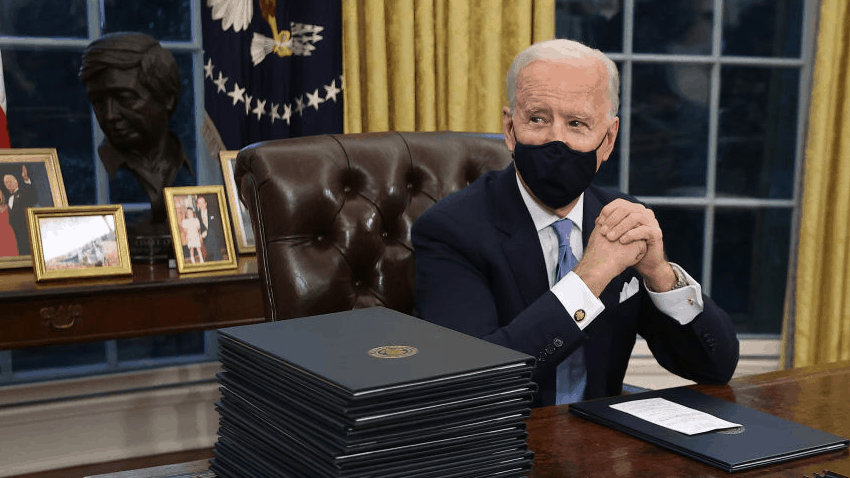Mackenzie Bouverat is a student at Harvard Law School.
In January, Judge Edward M. Chen of the U.S. District Court for the Northern District of California certified a class of more than 4,800 Uber drivers who alleged they were misclassified as independent contractors rather than employees under California law. The certification, he held, was not precluded by California’s Proposition 22, as the measure was not not retroactive. In a motion for clarification, Uber argued the court’s retroactivity judgment was inappropriate at the class certification stage. Last Friday, Judge Chen granted the order for clarification over the drivers’ objections, writing that “withholding adjudication of the merits of the retroactivity claim does not negate class certification — the issue of the retroactivity of Proposition 22 is a matter that may properly be decided on a class-wide basis.”
In his discretionary spending request, President Joe Biden has proposed spending $14.2 billion on the U.S. Labor Department for the 2022 fiscal year—a 14% increase in the agency’s current annual budget, subject to Congressional approval. The proposal allocates $2.1 billion for workers’ protection subdivisions of the Department of Labor (including the Wage and Hour Division and Occupational Safety and Health Administration). This figure amounts to $304 million more than was allocated to these subdivisions during the last fiscal year. With respect to the former division, the White House recommends that the funding be directed at investigating misclassification of workers as independent contractors rather than employees, as well as violations of equal employment obligations of Federal contractors. $285 million is requested for registered apprenticeship programs—$100 million more than the current annual funding—and is aimed at expanding paid vocational training opportunities for women and people of color. Finally, President Biden proposed a 6% increase for Workforce Innovation and Opportunity Act state grants directed at employment services and job training for workers dislocated due to the coronavirus pandemic. A more detailed budget request featuring specific funding requests for DOL subagencies is anticipated.





Daily News & Commentary
Start your day with our roundup of the latest labor developments. See all
April 19
Alabama and Louisiana advance anti-worker legislation; Mercedes workers in Alabama set election date; VW Chattanooga election concludes today.
April 18
Disneyland performers file petition for unionization and union elections begin at Volkswagen plant in Tennessee.
April 18
In today’s Tech@Work, a regulation-of-algorithms-in-hiring blitz: Mass. AG issues advisory clarifying how state laws apply to AI decisionmaking tools; and British union TUC launches campaign for new law to regulate the use of AI at work.
April 17
Southern governors oppose UAW organizing in their states; Florida bans local heat protections for workers; Google employees occupy company offices to protest contracts with the Israeli government
April 16
EEOC publishes final regulation implementing the Pregnant Workers Fairness Act, Volkswagen workers in Tennessee gear up for a union election, and the First Circuit revives the Whole Foods case over BLM masks.
April 15
The Supreme Court ruled in favor of bakery delivery drivers in an exemption from mandatory arbitration case; A Teamsters Local ends its 18-month strike by accepting settlement payments and agreeing to dissolve